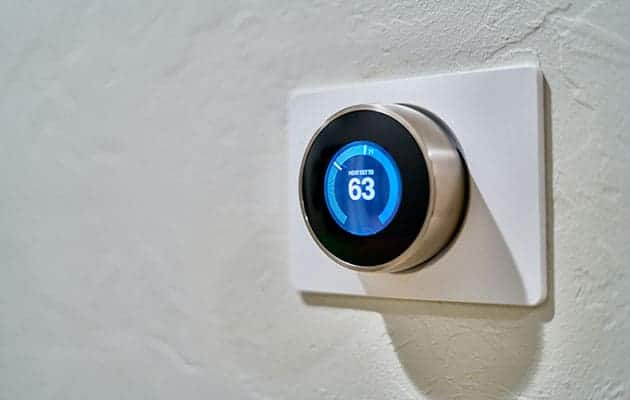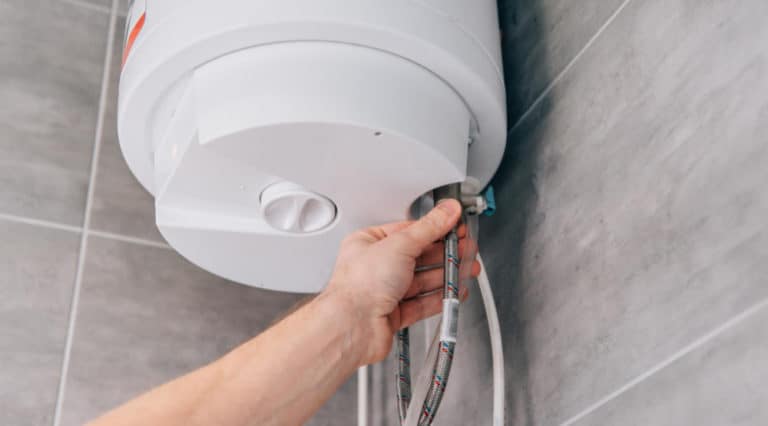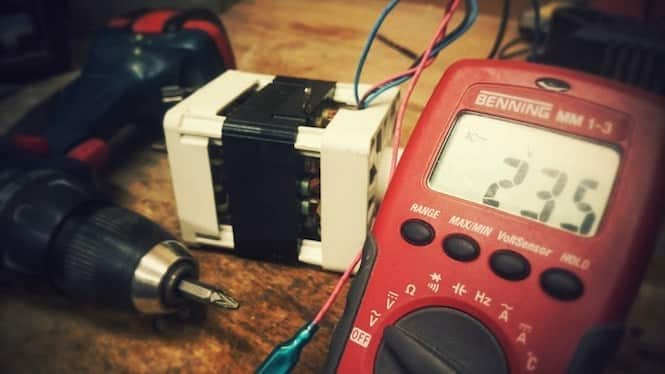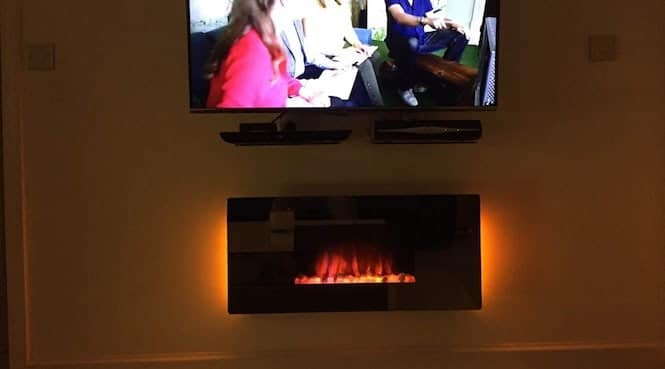Find My Local Expert Is your Heater Energy-Efficient? Most people...
Read More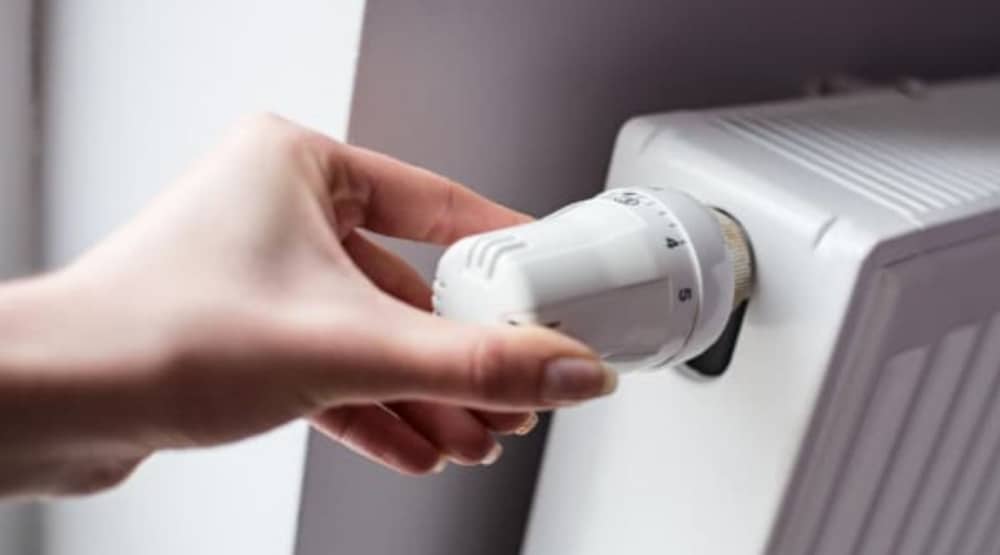
The ECO Scheme: Free Storage Heaters
The Energy Company Obligation (ECO) is a government energy efficiency scheme with the aim of reducing carbon emissions and tackling fuel poverty throughout Great Britain. The scheme has been in effect since 2013, seeing multiple amendments since then.
Heating is obviously a major concern in Great Britain, where the colder temperatures we see are more than low enough to endanger lives—especially lives that are already vulnerable, such as the older members of society. Unfortunately, gas, which is typically the most cost-effective way to heat an average home, is not always a practical solution. At the same time, electric heaters tend to be comparatively expensive to run, which puts homes that, for various reasons, cannot benefit from gas-powered heating in a bit of a predicament.
Storage heaters are one solution to this problem, and the ECO scheme contains provisions to that effect.
What Are Storage Heaters?
Electric storage heaters are electric heaters that are designed to take advantage of the cheaper electricity rates on offer during the quiet periods through the night. Off-peak times when there is less demand on the power grid are the best times to use electricity, and electric heaters require a lot of electricity.
Of course, you don’t necessarily need or want a heater running through the night, which is where the storage part of an electric storage heater comes in.
Electric storage heaters use that cheaper off-peak electricity to generate heat that is then stored for those times when you do need the heater to be running. As with many types of technology, the efficiency of that storage medium has improved immensely over the years, and modern storage heaters are able to store more heat than their predecessors, which is why replacing older storage heaters is desirable. In an appliance designed to save you money, you want it to be as efficient as possible.
Two terms you may hear when asking about electric storage heaters are “Economy 7” and “Heat Storage Blocks”.
Economy 7 and Heat Storage Blocks
Economy 7
Economy 7 is the name used for a system whereby electricity providers employ a special meter to track the day and night time usage of electricity. This is so they that electricity can be charged according to the different rates for peak and off-peak usage.
Heat Storage Blocks
Heat storage blocks, as the name suggests, are the components in storage heaters that retain the heat. In older storage heaters, these blocks were typically made out of heavy clay. In modern storage heaters, they are made using a more efficient ceramic material, or high-density magnetite.
These heat storage mediums can store more thermal energy, but also make use of better insulation methods to ensure that heat doesn’t escape until it is supposed to.
Are Storage Heaters Better Than Gas?
Unfortunately, even storage heaters are still more expensive to run than gas-supplied central heating systems. This may change in the future as the prices of gas and electricity fluctuate, and as storage heater technology continues to improve. The important thing to remember is that these heaters are intended for properties that can’t get gas-supplied heating, and so, while gas would be cheaper, storage heaters are still cheaper than that almost all of the viable alternatives.
Are Storage Heaters Reliable?
Modern electric storage heaters are incredibly reliable, especially compared to gas-supplied systems. This is largely because there are far fewer components to a storage heater, as well as no need for water pipes to be run from a central boiler to all of the radiators on the property.
Can I Get My Storage Heater Replaced?
Existing storage heaters can be replaced under the storage heater grant scheme in certain circumstances. Firstly, this does not apply to electric fires or portable electric heaters. Secondly, the electric storage heater must have been installed at more than ten years ago, or one of more of the storage heater units must currently be faulty.
Beyond that, your personal circumstances must qualify for the grant. You can find those criteria in the next section.
What Type Of Storage Heaters Are Installed?
The ECO scheme and the storage heater grant supply only the most energy-efficient storage heaters available at the time. These heaters will have significantly higher heat retention that can be as much as 30% more energy efficient than traditional storage heaters.
Of course, technology is always advancing, and it is entirely possible—even likely—that there will be even more efficient storage heaters available in the future. When that happens, the ECO scheme and the storage heater grant will likely adopt those newer, more efficient electric storage heaters.
How Much Disruption Storage Heater Installation Likely To Cause?
In the majority of cases, the disruption caused by storage heater installation will be very minimal. This is because the scheme exists to replace older or faulty electric heaters, meaning that most of the infrastructure (essentially this just means an electrical source) will already be in place, and the installers will just remove the old heaters and install the new ones.
In some cases, however, there may need to be some additional electrical work carried out, which may require new wires running in the walls. Any damaged plaster should be repaired by the installers, however, you may need to arrange to have those areas painted or wallpapered.
What Are The Criteria To Apply For the Grant?
As you would expect, there are certain criteria that a potential grant recipient must meet before being approved for a storage heater grant. There are three parts to the qualifying criteria that are as follows;
1. The grant recipient must own the home in order to qualify. At present, privately rented homes, council-owned properties, and housing association homes are excluded from the scheme.
2. The electric panel heaters currently installed on the property must be broken at the time of the ECO survey.
3. The grant recipient must be receiving one of the following state benefits;
- Guaranteed Pension Credit
- Child Tax Credit
- Working Tax Credit
- Universal Credit
- Income-based Job Seeker’s Allowance
- Income-related Employment & Support Allowance
- Income Support
- Disability Living Allowance
- Personal Independence Payment
- Attendance Allowance
- Carer’s Allowance
- Severe Disablement Allowance
- Industrial Injuries Disablement Allowance
- Child Benefit
- War Pensions Mobility Supplement
- Constant Attendance Allowance
- Armed Forces Independence Payment
In addition to these criteria, the scheme is only available in England, Scotland, and Wales—Northern Ireland has a separate scheme in place. Also, the home will likely need to be within an area that does not receive gas mains supply to qualify for a storage heater grant, though specific circumstances will usually be considered in this regard.
Are ECO Grants Available For Other Types Of Heating And Insulation?
ECO grants are indeed available for other types of heating and insulation. As this article is about storage heaters, we won’t dwell too long here, but there are ECO grants available for things like gas boilers, first-time central heating installations, under-floor insulation, and more.
How Are Storage Heater Grants Calculated?
Storage heater grants are not a fixed sum that applies to every applicant. The value your grant could amount to depends on a number of factors including the following;
- The type of property that the grant is being applied for
- How many bedrooms the property has
- Whether the property has been built with solid walls or cavity walls
- How well insulated the property is
One of the main things the scheme looks for is a potential benefit. A property that stands to gain greater benefit from having more efficient storage heaters installed will qualify for a larger storage heater grant.
For example, a house with a lot of bedrooms and subpar insulation will stand to be awarded a larger storage heater grant amount than a smaller, well-insulated property. As a general rule, smaller properties such as flats, maisonettes, and mid-terraced homes will receive the lowest amounts in their storage heater grants. This means that these types of property owners will often be required to contribute to the cost of their new storage heaters.
That being said, some property owners will qualify for free storage heaters under the ECO scheme. You will not find out how much—if anything—you would be expected to contribute until you have had your ECO survey. The survey is free, and you are not obligated to continue with the process if you do not wish. Canceling your application after the free survey should not incur any costs.
Conclusion
While gas-supplied heating is generally more cost-effective, it is not an option for everyone in the UK, but heating is still essential to the lives of British citizens. Electric storage heaters currently provide the best solution in terms of cost and effectiveness, taking advantage of off-peak electricity rates to heat your property during peak times.
The ECO scheme and storage heater grants are there to ensure that those who cannot benefit from gas-supplied heating can still get the heating their property needs, even storage heaters are too much of an investment for the owner at this time. If you qualify for this grant, it is certainly something you should consider.
You May Also Like...
How to Troubleshoot and Fix Electric Water Heaters
Find My Local Expert How to Troubleshoot and Fix Electric...
Read MoreGuide on Electrical Inspection and Testing
Find My Local Expert A Guide about Electrical Inspection and...
Read MoreFree Storage Heaters for UK Pensioners
Find My Local Expert Free Storage Heaters for UK Pensioners...
Read MoreElectric Wall Heater Installation
Find My Local Expert Electric Wall Heater Installation Considerations Many...
Read MoreNeed Your Electric Storage Heater Installed?
My Trusted Expert Guarantee
Experts Have Been Vetted & Approved
